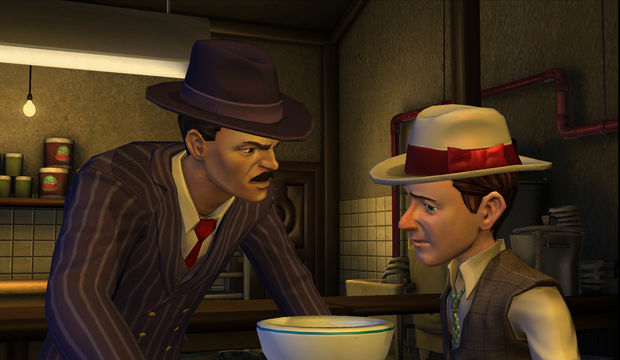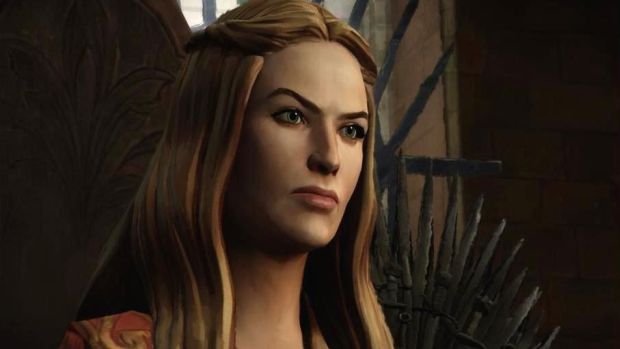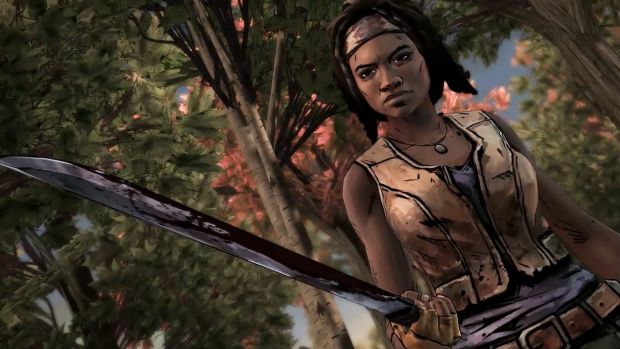
Telltale Games started in 2004, almost 11 years ago, and it wasn’t exactly the most renowned studio out there. That’s not a knock against the developer per say – it just wasn’t creating what one would call “triple A” blockbusters. What it did offer were adventure games. This was at a time when the so-called adventure gaming genre was still trying to find its bearings after the great collapse of the late 90s. Bone: Out from Boneville, Sam & Max Save the World and Tales of Monkey Island are some of the bigger standout titles the developer brought to us during its initial years.
"Back to the Future: The Game began the company’s fixation on pop culture franchises translated into the video game format with hardly any hang-ups."
Where did the transition happen to The Walking Dead model of gameplay? Interestingly enough, Back to the Future: The Game could be looked at as the best possible instance. Don’t get us wrong – Telltale’s signature gameplay style had been in play long before this. However, Back to the Future: The Game began the company’s fixation on pop culture franchises translated into the video game format with hardly any hang-ups. It was accessible to the masses but offered a compelling narrative and structure to appeal to gamers.
Telltale was still getting its bearings at this time. Jurassic Park and Law & Order: Legacies weren’t exactly all that great. But in April 24th 2012, The Walking Dead finally arrived. It did so modestly enough since this was an episodic format. We were introduced to Lee Everett and Clementine; to a world of the undead where, not unlike the comic, each decision made a difference. For all intents and purposes, it wasn’t just a Telltale Games story – it was an effectively well told story.
After the game’s success, Telltale expanded its formula to a variety of properties. The Wolf Among Us, Tales From the Borderlands and The Walking Dead: Season Two – these still remain some of Telltale’s best games, if not the most effective stories told within the interactive adventure format.
However, as time passed, other games began to jump on the episodic format. Resident Evil Revelations 2, Life is Strange and even the upcoming Final Fantasy 7 Remake (though decidedly larger) will have some kind of episodic format. But as Telltale continued on its way, something started to happen to its games.
"Things got even worse in Minecraft: Story Mode. How could you go wrong with Minecraft, especially when delivering a story? Of all the developers, Telltale found a way."
It started with Game of Thrones, which took place before the fourth season and focused on House Forrester. Cameos by the more famous characters like Cersei and Tyrion Lannister were included. And really, what better franchise than Game of Thrones to emphasize the important decisions one has to make? Here’s the thing though: Game of Thrones is a pretty brilliant piece of work (if you haven’t heard). It’s story-telling is amazing, even within the confines of a weekly TV show format…and that’s with the recent changes that have been made. And yet somehow, the story told in Telltale’s Game of Thrones didn’t feel as compelling or interesting. Sure it had its moments but it was not on par with the show’s brilliance.
Does it have to be? Not really, but it should be a successful standalone story connecting into the bigger web while also performing as an effective story on its own. Both those factors were executed well in The Walking Dead Season One and Two but not in Game of Thrones.
Things got even worse in Minecraft: Story Mode. How could you go wrong with Minecraft, especially when delivering a story? Of all the developers, Telltale found a way. One could say that there wasn’t all that much to build on in the first place. Perhaps Telltale was given limited freedom in the first place to craft an epic narrative. However, if your game is focused on battling a Witherstorm that will consume the world and your heroes need to find the fabled Order of the Stone to stop it, you could probably do a better job with the story-telling.
And now we have The Walking Dead: Michonne, a “mini-series” which actually provides a story arc taking place in the comics. Lo and behold, it’s faced criticism for its story telling and relative short length.
"Fatigue may not have set in yet for fans of the interactive adventure genre but a single story-telling approach isn’t going to cut it for very long."
Is the Telltale Games formula wearing thing? Did the studio’s reach extend its grasp with so many high-profile projects in the works (at last count, there’s Batman, The Walking Dead: Season Three, Marvel’s game and Game of Thrones: Season Two)? There could be many factors at play. It’s not like the world isn’t receptive to the company’s efforts. Minecraft: Story Mode spent several weeks in the top 10 best-selling charts for the UK and that’s probably the worst game Telltale has made recently.
While one could easily blame the format, it’s worth noting that books haven’t changed their general formats in decades. Story-telling has evolved though, expanding into graphical novels, audio books, moving pictures, animation and much more. But a book is still a story told through words, whether published on paper in your hands or in digital text on a screen.
How has your average book survived throughout the years as a strong story-telling medium? The story-telling and even with the benefit of different authors and tales over the decades, the ways said stories were told could always be different. For all of Telltale’s brilliance, it needs to evolve its story-telling approach sooner than later. Fatigue may not have set in yet for fans of the interactive adventure genre but a single story-telling approach isn’t going to cut it for very long.
















